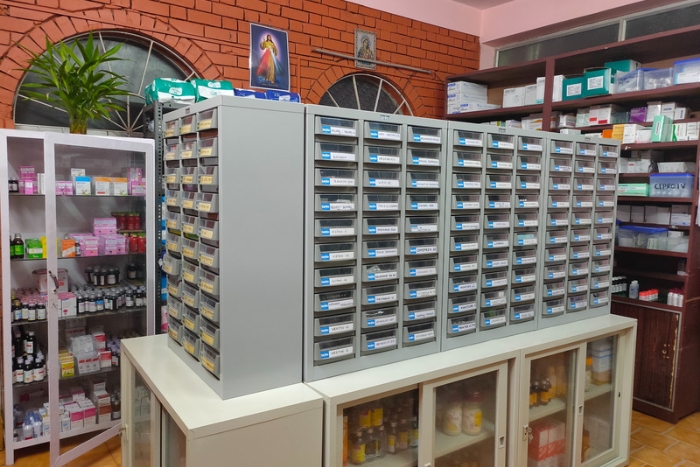
Pharmacists, who are highly trained healthcare professionals, are responsible for preparing, dispensing, and providing information about medications to patients. Here are some key aspects of pharmacies:
1. **Medication Dispensing**: Pharmacies dispense prescription medications, over-the-counter (OTC) drugs, and other healthcare products. They ensure that patients receive the right medications in the correct dosage.
2. **Patient Counseling**: Pharmacists offer information and advice to patients regarding their medications, including how to take them, potential side effects, and drug interactions.
3. **Compounding**: Some pharmacies engage in compounding, which involves customizing medications for patients with specific needs, such as allergies or those who can't take standard forms of a medication.
4. **Retail Pharmacies**: These are the most common type of pharmacy and are often located in retail stores. They provide a wide range of OTC products and prescription medications.
5. **Hospital Pharmacies**: Found within hospitals, these pharmacies are responsible for managing and distributing medications to inpatients. Hospital pharmacists work closely with medical staff.
6. **Specialty Pharmacies**: These focus on medications for specific medical conditions, such as cancer, HIV, or rare diseases. They provide specialized services and support.
7. **Mail-Order Pharmacies**: These pharmacies deliver medications to patients' homes, particularly for chronic conditions or long-term prescriptions.
Pharmacies are crucial in the healthcare system, ensuring that patients have access to safe and effective medications while providing education and support to optimize their use. Pharmacists also play a role in medication management, monitoring for adverse effects, and promoting medication adherence to improve patient outcomes.